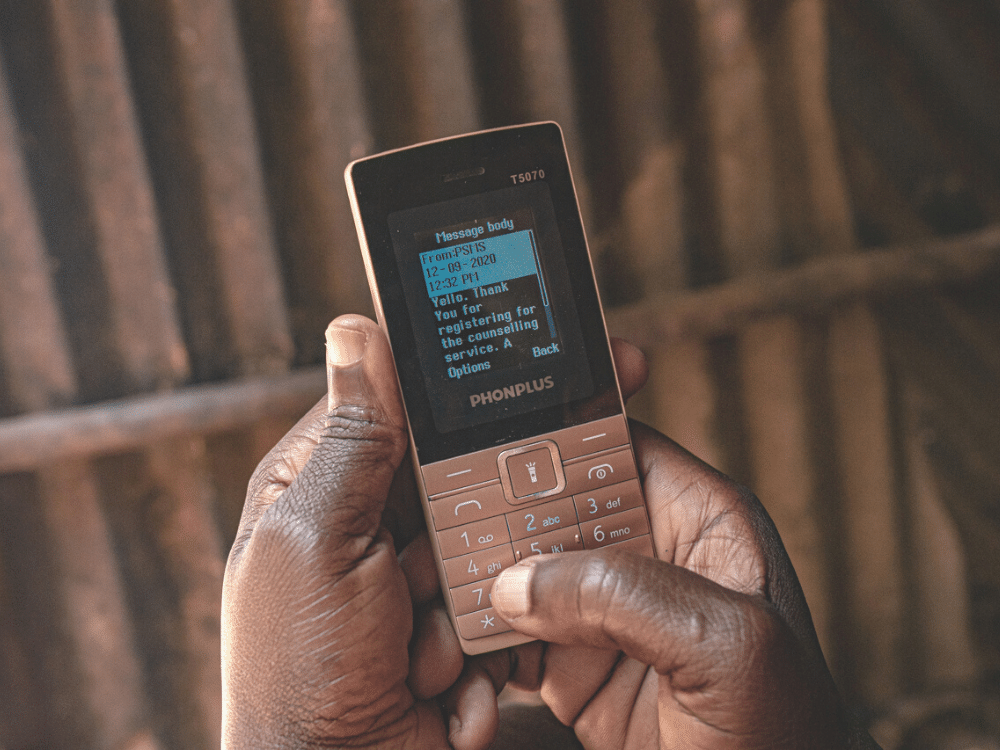Fueling our work through technology
 Building on our successes scaling through teletherapy during the pandemic, StrongMinds has now integrated phone-based technology throughout our operations, enhancing our ability to identify and treat individuals with depression, even as our in-person therapy operations resume.
Building on our successes scaling through teletherapy during the pandemic, StrongMinds has now integrated phone-based technology throughout our operations, enhancing our ability to identify and treat individuals with depression, even as our in-person therapy operations resume.
We continue to offer a pathway to depression screenings through *252, a short-code phone number in Uganda, and WhatsApp in Zambia. We utilize social media, radio ads, and media appearances to invite individuals to call us to receive mental health information or proceed to a 1:1 depression screening. Those who screen as depressed are invited to join a StrongMinds teletherapy group.
Where phone-based therapy is not appropriate, particularly in areas with sporadic access to electricity, poor telephone networks, and limited phone ownership, StrongMinds is now providing remote training, coaching, and supervision to volunteer Peer Facilitators. These volunteers, supported by technology, now treat thousands of clients with depression each year in remote and marginalized communities that we could not otherwise reach, including refugee populations.
Remote training and supervision methods have also fueled rapid growth in the number of clients we have treated through partnerships. In Uganda, we partnered with the Ministry of Health and local governments to train village health teams (VHT) to facilitate therapy groups on a volunteer basis – under StrongMinds supervision. VHT members are the foot soldiers of the Ugandan health system—volunteer community health workers who connect health services with community members in collaboration with local health center staff. This new hybrid model is similar to our Peer Therapy Group model, except that VHT group leaders may not have a lived experience of depression and have not participated in StrongMinds therapy. Ultimately, we treated depression in 12,123 individuals through government Village Health Team partners.
We credit this full-scale integration of technology into our operations for helping us surpass our 2021 goals for patients served, putting us on course to treat 300,000 individuals with depression over the next three years.
